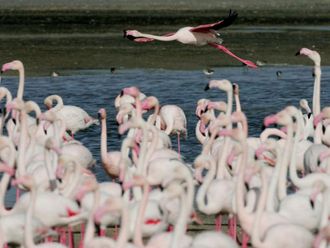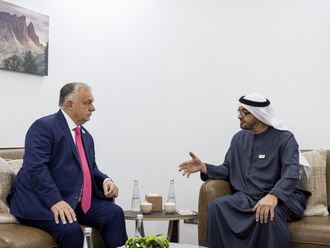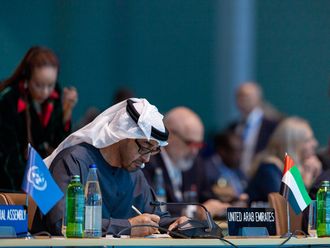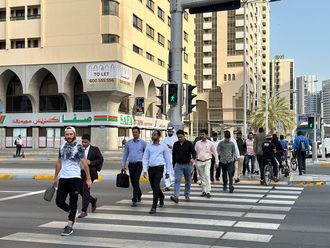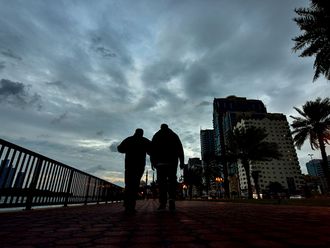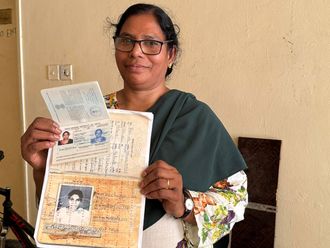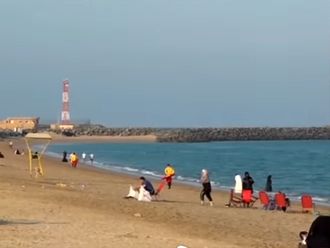Al Ain: Sea water is being used in farming research to water crops that tolerate, and even need salt to thrive. If successful, farms along the coastline whose fresh water wells dried up long ago could pick up again giving depleted aquifers time to recharge.
Salt-tolerant grass, called halophytes, produced for golf courses or forage for cattle and camels, are the focus of modern farming techniques being developed by the Faculty of Food and Agriculture at UAE University in Al Ain to save water.
Environmental economists have highlighted that while domestic agriculture is a serious drain on freshwater water tables in the UAE, arable land is limited and future farming expansion has no potential.
According to the Gulf Research Centre agriculture in the UAE accounts for only 2.8 per cent of gross domestic product (GDP), but consumes about 80 per cent of underground water reserves.
In Abu Dhabi, the government recently launched a scheme to pump desalinated seawater underground. Aquifer Storage and Recovery (ASR) injects desalinated water into aquifers.
In the first phase, scheduled to be completed by 2012, seven million gallons of water will be pumped underground daily, Gulf News reported last month.
Professor Galeb Al Hadrami, dean of the Food and Agriculture Faculty at UAE University is adamant solutions must be found because agriculture cannot be ‘abandoned altogether'. Farming does not have to be a drain on the economy and water reserves, he said.
The faculty's focus is on finding ways to limit water use in agriculture. "Food security is an important issue here and the UAE realises that we cannot depend purely on imported food. We have to farm sustainably. We do not want to farm wheat or corn, but there are other crops that can be used to achieve food sustainability," Al Hadrami said.
In fact sea water could be used to farm salt-water tolerant grasses along the coasts of Ras Al Khaimah or Fujairah, Dr Mohammad Abdul Mohsen Salem, assistant dean for scientific research and assistant professor of agro-ecology at UAE University, said.
At the university's experimental farms in Al Ain and Sweihan, Dr Ali Al Keblawi, associate professor of plant ecology. is studying halophytes.
"These plants can really save water, they can cope with harsh environments and require less maintenance than imported plants used in public parks and gardens," he said.
Dr Shyam Kurup, associate professor of horticulture at UAE University, has developed halophytes for golf courses with a grant from the Emirates Foundation.
Turf grasses with these qualities are being propagated from Arizonian species and bred with local species called paspalum grasses. "They require less water, but saltier water with 20,000 parts per million (ppm) of salt. In our trials we are finding species that can tolerate 30,000 ppm salinity," he said.
Salinity of the Arabian Gulf is recorded at above 40,000 ppm. Typical seawater has 35 ppm salinity.
Al Foah: Pioneering concept of sustainable agriculture
The UAE University's experimental farm in Al Foah covers over 40 hectares. It first opened its gates to students of the Faculty of Food and Agriculture in 1984. Emphasis is on research that can boost sustainable agriculture for arid countries. Its motto is ‘More crop per drop'.
Dr Mohammad Abdul Mohsen Salem, assistant dean for scientific research and assistant professor of agro-ecology said the farm is not organic but functions as a zero-chemical farm.
The farm has four main areas of date palms and fruit trees, crops and vegetables, ornamental plants, and livestock and poultry. The produce is sold at a shop on one of the university's campuses.


